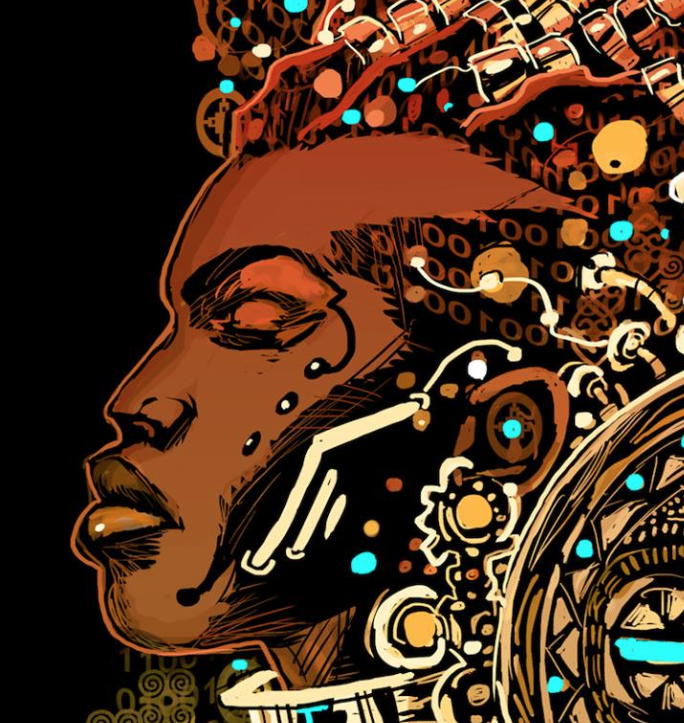Will OBOR contribute to the full circle of history’s clock?
We know that the new technology, AI, will be based fundamentally on philosophical principles from Greece.
We know that a global conscience is possible, a result of the interweaving of individual consciences (interwoven with groups' consciences), that seeks a more equitable society without the need to overthrow any system but taking advantage of the system, to improve it and to improve its members.
We know of an economic theory, where the concepts dance according to the point of view, that is, without fixed formulas, but specific functions according to the case inside their general case.
We know, we can do it, and we will do it, right here, in SYlodium.
The Domestic Consequences of China’s ‘One Belt One Road Initiative’
Last year, the Xinhua News Agency said that OBOR has already made 76 major achievements and had more than 270 specific results, which included all sorts of international treaties, cooperation, projects, funds and aids. This year is the fifth anniversary of OBOR and the propaganda machine of the CPC has produced a lot of articles to praise its greatness. However, they hardly ever mention any benefit brought back to the Chinese people. No figure about any relevant increases in terms of jobs, foreign exchange reserves or domestic living standards has been found. Maybe it’s too slapdash to conclude that there are no significant positive domestic consequences, but the reality in today’s China——economic slowdown, social instability and intensified repression, shows that OBOR has not been able to push the country in a bright direction.
China – Israel – Africa
Create your own circuit, route inside Sylodium’s system to tap our global IoT – IIoT, and AI platform for bilateral, triangular, circuits trade, as China – Africa AI CYBERNETICS, SHENZHEN – Singapore - SADC 4.0, SHANGHAI – Keifang - Dubai - IGAD FIR, Ningbo Tel Aviv – Nairobi – Cape Town - West Africa China South – Israel - Kenya Shipping 4.0, China – India - ECOWAS AI – IoT-IIoT,
The Unavoidable Route of Chinese Capitalism
Capital must generate profits. This is the golden rule of capitalism. After three decades of high-speed economic growth in China, both state and the private capitalists have accumulated incredible amounts of capital. For example, China’s foreign exchange reserves were only US$2,262 million in December 1980, but in June 2014 they had reached an all-time high of US$3,993,212.72 million.

This incident is a miniature of China’s domestic economic hardship. According to a recent Wall Street Journal article, Leiyang had racked up 2.464 billion yuan of outstanding debt at the end of 2017, or 111% of revenue. Government spending on areas such as education, medical care and social welfare were inevitably affected. Another article pointed out in June that the city’s educational resources were insufficient, and the phenomenon of oversized classes was worsening.
China’s Belt and Road Initiative: What Role for Latin America?
Chinese officials have also highlighted a few Latin American countries as participants in the BRI. Mexico was singled out as an “important node” in the initiative’s extension during the September 2017 BRICS Summit. Panama became a “natural extension” of the BRI during Wang Yi’s visit to the Central American nation. Also, Panama, Trinidad and Tobago, Antigua and Barbuda, and Bolivia are among the approximately seventy countries to have signed Belt and Road Cooperation Agreements with China, with more expected to sign on in the coming months.
Growing reference to Latin America and the BRI is also the result of the initiative’s own conceptual transformation. Initially billed as a synthesis of the Silk Road Economic Belt and Twenty-First-Century Maritime Silk Road, with five main routes traversing Asia and Eastern Europe, the BRI has since evolved into what Chinese officials describe as a geographically inclusive platform.
Yet, despite growing Chinese interest in extending the BRI to Latin America, and sustained enthusiasm in LAC about this prospect, it is unclear what, if anything, stronger LAC ties to the BRI will do for the region
Rexiology of “The Jew’s Empire” form Latin World towards Africa, where all can be represented by maps, from the commerce to the intentions of businesses men.
X axis
X1. Flow of trade from the exchange between states, economic blocks and large corporations to the business fabric to the subjects to the bottom of their consciences. X2. Empires, States, Stock Exchanges, Multinationals, Lobbies, Unions, governments, groups, etc X3 Balance of payments, Large accounts Companies X4 Wars, FIR companies, megatrends, future X5 New intermediaries Can the banking, the stock market, the insurance companies really survive the fourth industrial revolution?
Y Axis
Y1 Earth, Mundi Map, Borders, Capital, Work Y2 Biocenosis, every entity is allied and rival to others and in its group and with itself. Y3 Power relations and their various positions in 3D Y4 Economic interweaving, even consciences. Y5 Artificial Intelligence, which is in robotics, Big Data, 3D technology, etc
Z axis
Z1 Jews Empire, there is a new social class, with great knowledge, that wants its piece of power, where ideas, be money, because ideas, colonize the new virtual land of SYlodium. Z2 Politics, Economics, Sociology, Psychology Z3 Individuals, Groups, Crowds, Z4 USA; China, and budding economic blocs. Geopolitical game. Z5 Agricultural Revolution, Industrial Revolution, Technological Revolution based on Greek philosophy, the return of the clock, the eternal return. Rome - and the Jews

Chinese manufacturers building brands for future success
Chinese businesses have been good at manufacturing but now we have to change our mindset. Brands are the future.
Many factories have been able to overcome the technical challenges of producing certain products, from drones to smartphones to solar panels (and more). This technical capability reflects China’s drive to rise up through the value chain. And coupled with the Made in China 2025 initiative, it’s likely that some factories will become increasingly sophisticated and better able to produce advanced goods.
But even though you can make a great product doesn’t mean everyone will buy it.
By forging their own brands, and using the marketing expertise of overseas firms, Chinese companies are positioning themselves for future growth and competition against international businesses. Chinese companies have realized that right now their understanding of foreign markets is insufficient, so they’ve hired foreign talent to level the playing field. And in the years to come, that might just make all the difference in the competition against those importing from China.
Google executive to explore history of artificial intelligence, machine learning
Do you really think that Google is in the right way?
In fact, the way was shown by Greek Philosophers.
By te waym, Penn State alumnus Jay Yonamine, head of data science and global patents at Google, will deliver a lecture titled “A History of Artificial Intelligence and Machine Learning” at 11:15 a.m. on Friday, March 29, in Paterno Library’s Foster Auditorium. The event is free and open to the public.
Yonamine, who earned a master's degree and a doctorate in political science from Penn State in 2011 and 2013, respectively, is widely recognized as one of the pioneers and thought leaders in the data science field. He is at the forefront of efforts to use “big data” to make policy decisions and at balancing human experience and big data to achieve optimal results.
But we ask you again, do you really think that Google is in the right way?
Not really, in fact, the way was shown by Greek Philosophers.
By the waym Prior to joining Google, Yonamine held data science and product management positions for assorted legal, insurance and social media companies. He also has consulted for various e-commerce organizations and government agencies, including the U.S. Department of Defense and the National Geospatial-Intelligence Agency.

